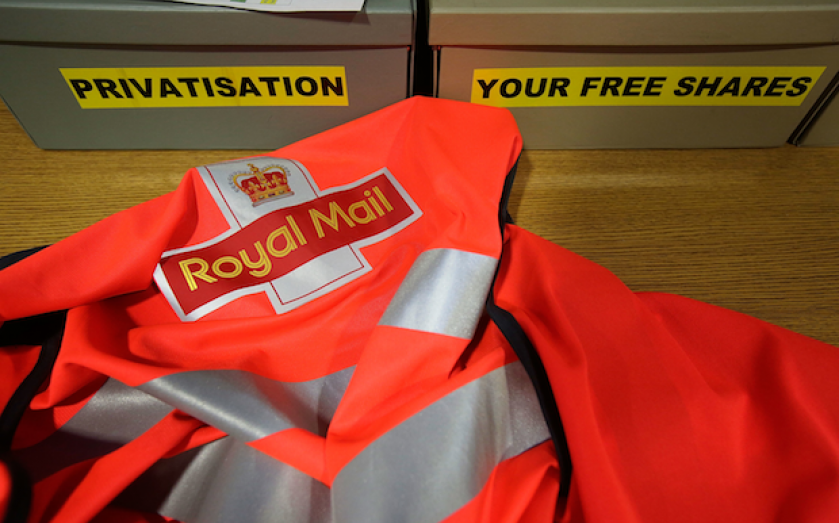Privatisation may have come too late to stop the decline of Royal Mail

Since privatisation Royal Mail has enjoyed a positive settlement with the Communication Workers Union (CWU), continued to implement its efficiency plan and has reported trading in line with guidance.
However, Royal Mail's recent success is under increasing threat as the UK takes off as one of the most liberal and competitive postal markets in the world, according to a research note from Espirito Santo Investment Bank.
Intense competition, limited scope for efficiency gains and the decline in letter volumes auger badly for Royal Mail, while its competitors continue to innovate with new services and extra capacity.
Espirito draw attention to three areas that will prove the most challenging for Royal Mail in the years to come.
Letter volumes
Espirito are increasingly concerned that "the rate of decline in letter volumes will become unmanageable". The Investment bank notes that Royal Mail's valuation is particularly vulnerable to declines in letter volumes and revenues.
In the fiscal year 2013, Royal Mail accounted for approximately 99 per cent of the downstream market. However, TNT Post UK is now funded to continue rolling out its E2E service and plans to serve over 40 per cent of the UK population within the next four years.
TNT already handles 3.6bn letters upstream and could deliver 1.6bn itself on completion of these rollout plans. This could hit Royal Mail revenues could by as much as £320m a year, which would be hard to offset with lower delivery staff numbers.
TNT competition maybe lifting some of some of the weight from Royal Mail bags but this does not mean a postie will be able cover a longer route as most of the time is taken up by visiting a high proportion of addresses on the route. Simply delivering slightly fewer items per day to each address saves little if any time.
Sequencing in the local office has already been slashed to 30 minutes over an eight hour work day from as much as three hours several years ago. This dramatically limits Royal Mail's scope for efficiency.
Royal Mail in the past has not had to face E2E competition whereas Deutsche Post and PostNL have. This could mean the benefits seen from parcel automation, potentially as much as £300-400m a year, may in the end simply be offsetting revenue lost to TNT Post UK.
Espirito estimate that TNT could achieve 11 per cent market share of delivery for UK letters in three to four years' time.
Parcel service
Rapid innovation in the parcel market by competitors is another challenge facing Royal Mail. DPD has already introduced its new Predict service, which gives customers a one hour delivery slot and provides real-time 15 minute countdown to delivery so customers know exactly when their item will arrive. UK mail is also offering a one hour delivery slot.
Not only this but DPD Hermes, UK Mail and Amazon Logistics Service have announced the launch of Sunday deliveries during 2014 and RICO Logistics has launched sameday evening delivery.
Royal Mail is capable of delivering these services but the implementation of the new technology and opposition from unions delay the process by unto a year, resulting in a short-term loss of market share.
Meanwhile parcel growth for Royal Mail has been flat, with eight per cent revenue growth thanks to price changes in April 2013. It is not clear what will happen to parcel revenue when the effect of size-based pricing drops out.
Parcel capacity
Almost all of those operators tracked by Espirito are increasing capacity hubs, depots and branches. From 2014 to 2015 DPD alone is planning to add about 10 per cent to the industry depot capacity and many others such as City Link, Hermes and UK Mail are making substantial investments.
DPD's new hub, set to become operational in 2015, can handle 70,000 parcels an hour and is fully automated. To give an indication of the scale of this expansion 70,000 parcels per hour, 300 days a year and at just 10 hours per day would increase capacity by around 200m parcels a year, compared wit total parcel deliveries in 2013 of 2bn.
With both increasing competition and capacity Espirito has cut its recommendation from "buy" to "neutral".